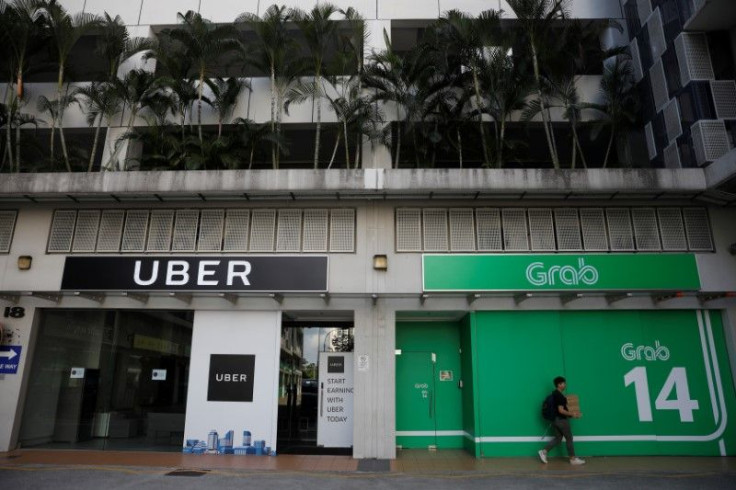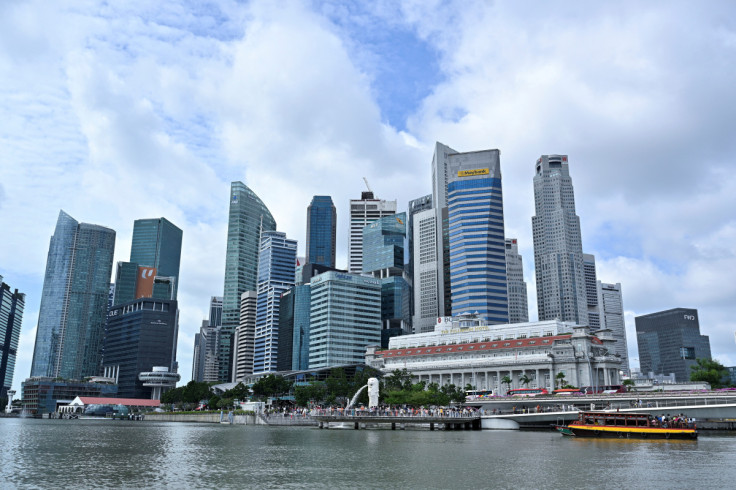Southeast Asia Is A Hotspot For Startups, But Why Are Investors So Eager To Invest?

KEY POINTS
- There were at least 5,800 active startups in Southeast Asia in 2018
- Southeast Asian startups raised $17.79 billion in funds in 2022
- An expert attributed the highly-skilled population for SE Asia's startup growth
In recent years, the world has witnessed the rapid economic growth of Southeast Asia, home to over 660 million people.
Research by S&P Global Market Intelligence showed that the region, comprised of 10 countries, had a combined gross domestic product (GDP) of $3.3 trillion in 2021, becoming one of the fastest-growing regions of the world economy.
Southeast Asia sees itself growing further despite current economic headwinds, according to the 2023 investment report of the Association of Southeast Asian Nations (ASEAN). Citing a projection by the International Monetary Fund, it noted that the region is estimated to grow by 5.6% in 2022 and 6.0% in 2023, outpacing the projected global GDP growth rates of 3.4% and 2.9%, respectively.
This rapid growth is evident in the annual GDP growth rate of the 10 Southeast Asian countries for 2022. Malaysia, Vietnam, the Philippines, Indonesia and Cambodia had GDP growth rates between 4.8% to 8.7%. Meanwhile, Singapore, Thailand, Laos, Myanmar and Brunei posted growth rates between 0.9% to 3.6%, as the region continues to emerge from the COVID-19 pandemic.
The level of economic development the region has seen in recent years has made it the center of emerging markets and tech innovators. No wonder, Southeast Asia has become a hotspot for startups.
Unicorns in Southeast Asia
An ASEAN startup report noted that in 2018, the region had at least 5,800 active startups involved in e-commerce, fintech, enterprise solution, big data and consumer goods and services.
From 2013 to 2022, the region has produced 52 unicorns or startups that crossed the $1 billion valuation mark.
Southeast Asia's unicorn startups include "Uber-killer" Grab, e-commerce platform Lazada, travel app Traveloka, and fintech companies Mynt and Coda Payments.

However, the region was impacted by an economic slowdown brought about by Russia's invasion of Ukraine, stubbornly-high inflation and fears of a recession in 2022.
Southeast Asian startups only managed to raise $17.79 billion in funds last year, according to Nikkei Asia. It was a 31% drop from the record $25.75 billion in 2021.
Only 8 Southeast Asian startups were minted as unicorns in 2022, a far cry from 23 in the previous year. This, however, is expected to increase as the world economy bounces from the pandemic and more funds and investments funnel into the region.
Fertile Ground for Startups
Aside from economic growth, the level of skills and proficiency of Southeast Asian citizens have helped the region become an attractive startup destination, Nancy Wang, General Manager for Amazon Web Services (AWS) Data Protection Services and Founder of Advancing Women in Tech, told the International Business Times.
"The significant community of highly-skilled, technical professionals in the region, combined with English proficiency in the workplace, makes Southeast Asia an attractive region to invest in for tech companies," Wang said.
Wang, also a venture partner at Felicis, cited Grab, a popular ride-hailing company, as an example of the startup industry's stellar growth in Southeast Asia.
Grab's approach of "catering to the preferences of the local economy" in Malaysia became its winning edge over Uber, noted Wang.
Grab banked on Malaysians' preference for a cash-based system, which its U.S.-based ride-hailing rival did not offer on its app.
"Startups need to be built to solve local problems," Wang added.

For German entrepreneur Simon Bacher, it was Southeast Asia's vibrant culture and thriving economy that inspired him to establish a startup in Thailand.
"My co-founder and also my wife, Kanyarat, is a Thai citizen. We decided to quit our jobs in Germany and start the company in Thailand because we love the culture and the working environment in this country," Bacher, CEO and co-founder of ed-tech startup Ling app, told IBTimes.
He noted that the low cost of operating a business in the region, including employee salary, office rental, and food and drink, has "provided us more opportunities to grow our startup with a limited budget."
Despite the challenges that startups face in Southeast Asia, such as the long registration process for foreigners and adapting to the regional culture, Bacher shared that Ling App has successfully grown in the region -- from just 5 employees to over 40 employees.
More Opportunities for Tech and Fintech
Wang believes Southeast Asian countries' pivot to digitalization has helped grow tech and finance startups in the region.
"By empowering entrepreneurs to bring their businesses online and to the cloud, Southeast Asian countries have allowed local startups to make the leap into the digital age," the AWS executive explained, adding that this has saved startups from the "painful and potentially tedious journey" of modernizing themselves.
When asked if certain countries in the region are preferred for startup companies, Wang said she would instead use a particular set of criteria than look for a specific country.
Startup hopefuls should take into consideration English proficiency, the capability to operate on a global business scale, technical proficiency and the risk appetite of the location they are looking at.
Bright Future Ahead for Southeast Asian Startups
Wang is "very optimistic" about the future of Southeast Asian startups, citing Amazon Web Services' $6 billion investment in Malaysia until 2037 -- the country's largest tech investment.
AWS is set to build data centers hosting cloud services and applications across Malaysia that would empower startups in the region, the South China Morning Post reported.
Wang suggested that current geopolitical tensions would also cause Southeast Asia to "[grow] in prominence from multiple tailwinds."
As a "dynamic and fast-growing market," Bacher sees that more startups would be established by both Western and Southeast Asian entrepreneurs over the next decade.
"The development of infrastructure, information technology and startup communities will provide entrepreneurs with a lot of opportunities to grow their businesses and collaborate with each other," he said.

© Copyright IBTimes 2024. All rights reserved.





















